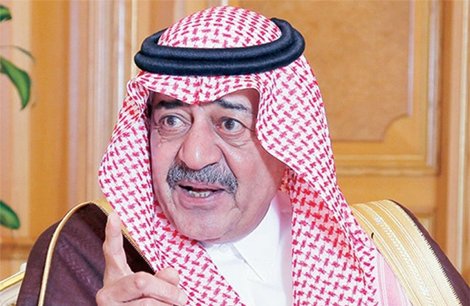Riyadh, 4 Rabi’ul Akhir 1436/25 January 2015 (MINA) – In the past three decades the Saudi royal family has witnessed heated rivalry between the two main branches of the family, the Sudairis and sudairis/">non-Sudairis.
Following the death of King Abdullah, the pledging of allegiance to Salman bin Abdul Aziz as the new king and the appointment of Prince Muqrin bin Abdul Aziz as crown prince, is it possible for these rivalries and differences to resurface?
When the late King Abdullah ascended to the throne, he knew that the differences between the two branches in a power struggle could threaten the entire Al-Saud dynasty, Middle East Monitor (MEMO) quoted by Mi’raj Islamic News Agency (MINA) as reporting, Sunday.
As such, he sought a balance and set out some rules for the peaceful transfer of power in order to avoid dangerous conflicts within the family.
Also Read: Syria, Jordan Condemn Netanyahu’s Visit to Occupied Syrian Buffer Zone
The Allegiance Commission was established to try to ease succession issues. Based in Riyadh its meetings are held behind closed doors in the Royal Court, usually by order of the king.
Members are obliged to be discreet and maintain an official silence regarding the discussions that take place. All members must attend every meeting; decisions are approved by a two-thirds majority.
The head of the commission, who has a casting vote in the event of a tie, is the oldest grandchild of King Abdul Aziz, the founder of Saudi Arabia; the deputy is the next oldest.
On the death of the monarch, the commission is tasked with handing over power to the crown prince and making the official succession proclamation of the new king.
Also Read: UNIFIL Reports Over 7,300 Israeli Violations of Lebanese Airspace Since Ceasefire
The appointment of the crown prince is the prerogative of the King although he may seek advice from the commission in this regard.
He has the authority to suggest three individuals from which to choose, and if the commission rejects all three, they must suggest a candidate. If the king rejects this candidate, a ballot is cast involving all of the candidates, and whoever receives the most votes is appointed.
Since Abdul Aziz’s surviving children are the oldest and most suffer from potentially fatal illnesses, the commission has set out some medical standards to be met.
If the king suffers from a chronic illness, or if the king and crown prince die at the same time, then matters are put in the hands of a temporary commission, which is charged with choosing one of Abdul Aziz’s children within seven days.
Also Read: Russia Condemns UN Gaza Resolution, Says It Contradicts Palestinian Statehood
The intention is to impose stability and cope with emergency situations such as internal conflict that would be impossible to control if played out in public.
However, some experts and observers of Saudi affairs believe that the commission complicates matters in the Kingdom rather than simplify them.
This is due to the fact that it almost encourages the formation of rival political blocs in a power struggle and is therefore unable to solve the problems arising from a transition of power.
The Al-Saud government is based on a hierarchical structure that takes into account conflicts and rivalry within the family.
Also Read: Israeli Airstrike on Palestinian Refugee Camp in Lebanon Kills 13
The structure is set up with the king at the top, followed by his brothers, the sons and then the rest of the family.
This unique formula is used to distribute sensitive and important positions amongst family members. It is also used to divide wealth and allowances earned by the family from the state’s resources and from every deal made.
There are over thirty sons of King Abdul Aziz who are all at the same level, hold the same rank and are close in age; all aspire to sit on the throne or, at the very least, be appointed to senior positions.
Meanwhile the second generation, Abdul Aziz’s grandchildren, are absent from the actual fight for power and the throne.
Also Read: UN Security Council Adopts US-backed Resolution to Deploy International Force in Gaza
They are said to have been overlooked in the power equation over the past few decades. This allows them to compete in the accumulation of wealth and spoils.
A number of experts, politicians and analysts differ in their opinions regarding the nature of the transfer of power in Saudi Arabia.
Some have said that the rivalry between the young princes will make the next transition of power rough, while others believe that the political situation in Saudi Arabia is stable, and there is no need to worry about the transition and sharing of power.
According to Article V of the Constitution, the system of government in the Kingdom of Saudi Arabia is that of an absolute monarchy. It also states that rule passes to the sons of the founding king and then to their children.
Also Read: UNIFIL Condemns Israeli Tank Fire Targeting Peacekeepers in South Lebanon
The most upright among them is to receive allegiance in accordance with the principles of the Holy Qur’an and the traditions of Prophet Muhammad, peace and blessings be upon him.
The same article also states that the king chooses the heir apparent and relieves him of his duties by Royal order; the heir apparent, as crown prince, is to devote his time to his duties as such and to whatever missions the king entrusts him with.
The crown prince also takes over the powers of the king on the death of the latter until the act of allegiance has been carried out. (T/P002/P3)
Mi’raj Islamic News Agency (MINA)
Also Read: Israel Fires on UNIFIL Peacekeepers in Southern Lebanon


































 Mina Indonesia
Mina Indonesia Mina Arabic
Mina Arabic